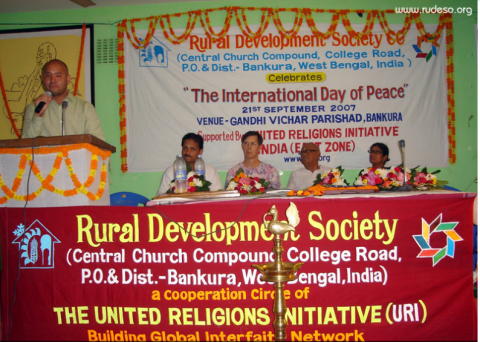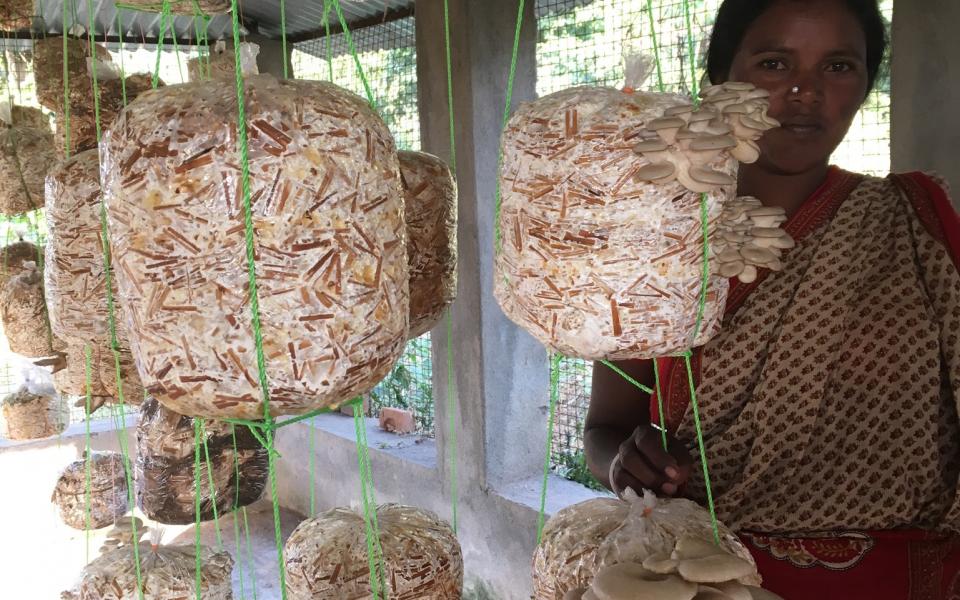
A Self Help Group (SHG) of women started by Rural Development Society CC grows mushrooms to provide them with basic income for themselves and their village.
The Rural Development Society (RDS) is a NGO based in Bankura, West Bengal (in India's East Zone) focused on training villagers to incorporate a variety of ecological projects into their village in order to improve the local economy and their access to resources like potable water and fruit.
RDS primarily focuses on organizing and training groups of women, called "Self Help Groups" (SHGs), in order to provide women with sustainable (often, agricultural) opportunities to generate income for themselves and their village.
One of the SHGs grows mushrooms using very simple materials. They sell the mushrooms in the town market for 150 rupees per kilogram. The women are energetic and excited by the opportunities growing mushrooms affords them. Just a few years ago they did not know how to manage money and had never been to a bank. Now, they've completely transformed the village economy with their growing efforts.
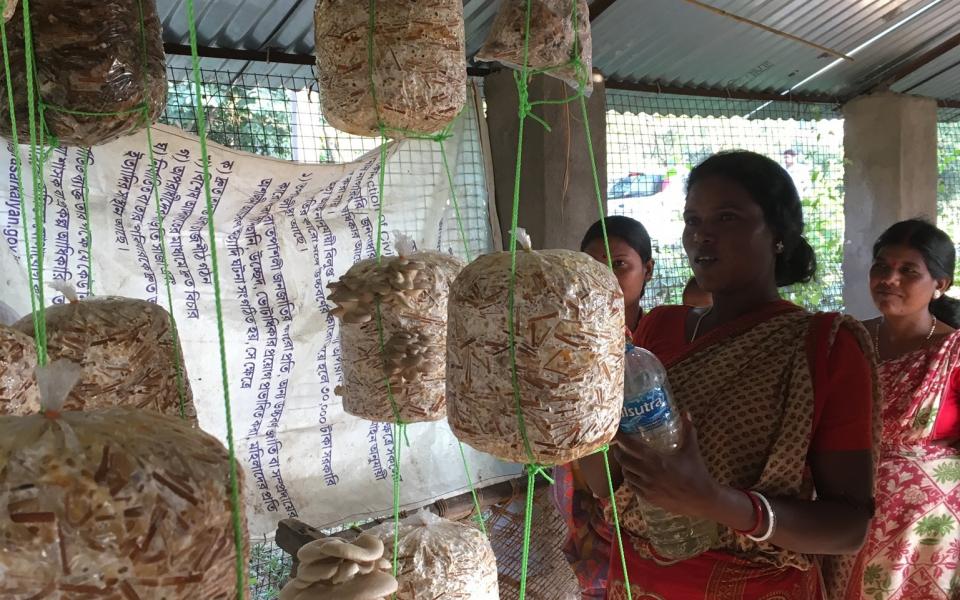
Women from a Self Help Group water mushroom spawns with a home-made spray bottle.
After establishing good standing in the community over the last twenty-five years, RDS arranged for the local government to donate solar-powered submersible water pumps to supply potable water to all the homes in the village. One of the Self Help Groups manages the solar panel and water collection tank.
The field next to the water pump was recently donated by a villager to RDS to host cultural activities and celebrations for the community.
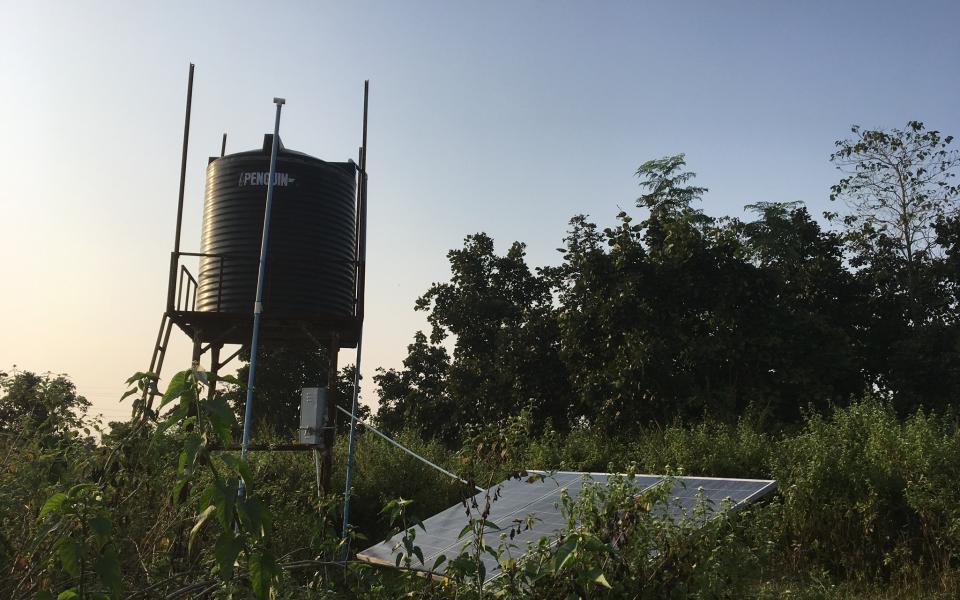
Solar-powered submersible water pump that supplies potable water to every household in the village.
Another Self Help Group (SHG), comprised of nearly seventy women is responsible for caring for a large plantation of bananas. Nearby the plantation, the SHG runs a solid waste plant where solid waste from village households is collected to make biogas. RDS is hoping that the Bankura government is impressed by their waste-to-biogas plant and adopts their plans on the city-level.
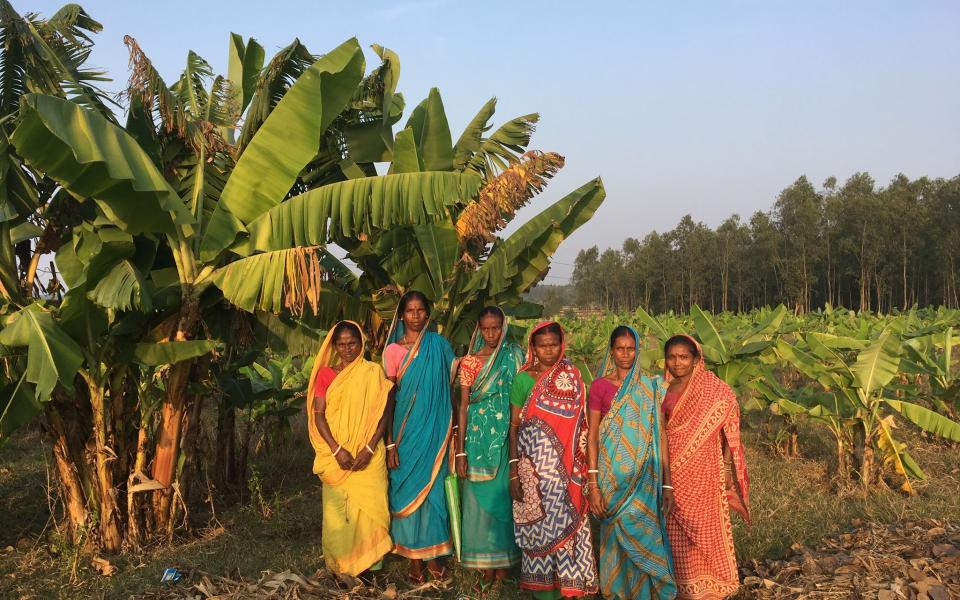
Women from Self Help Group associated with Rural Development Society CC stand next to their banana plantation.
Most recently, RDS is working on Project 69, which is an effort to restore biodiversity to the community by planting 69 varieties of trees. Since beginning the project, they've recreated a rainforest, restored species of snakes and rabbits and given the community a new source of firewood.
RDS has plans to expand Project 69 by creating a trekking path in the forest for tourists and to be used to teach children about native flora and fauna.
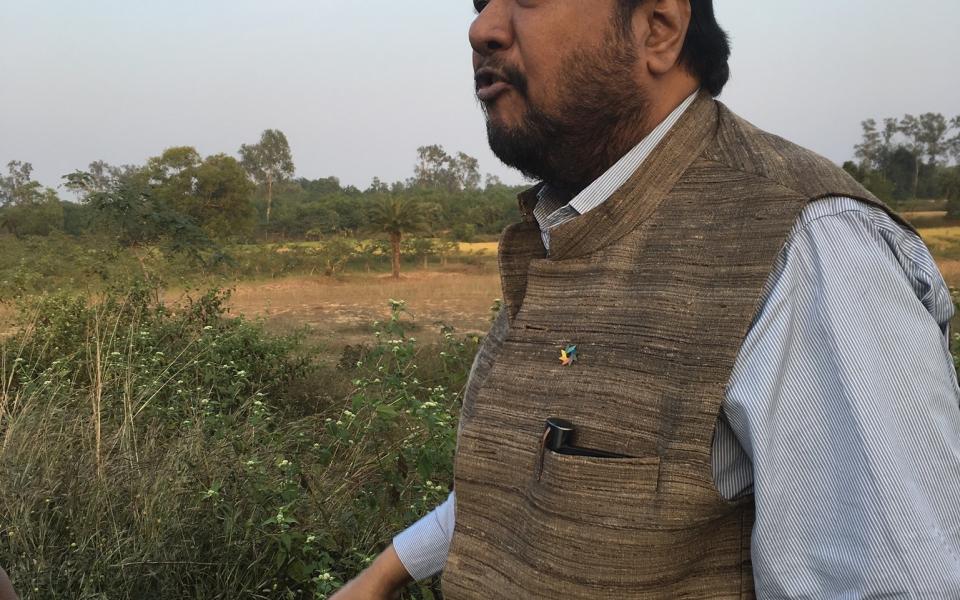
Member of Rural Development Society, and President of URI East Zone, explains Project 69.

